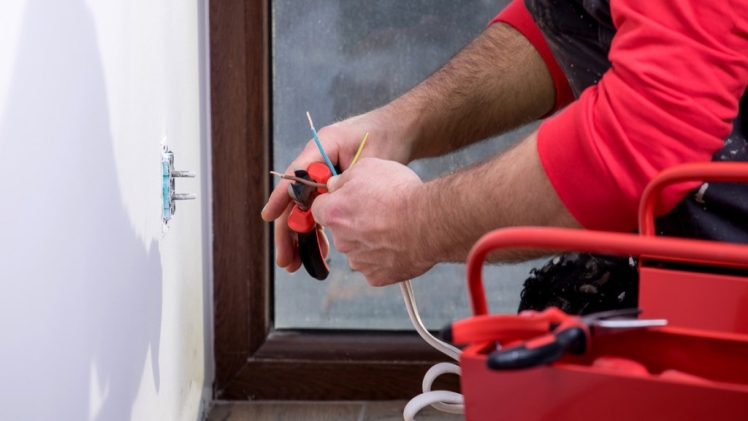Electricians need to be careful when working to prevent accidents like burns and electrocution. An electrician needs to perform various roles, such as installing circuits as well as wires. You may also be asked to install an electrical fixture, such as a light bulb. Irrespective of the job you get called to do, there will always be an element of danger at the workplace.
Dangers from electricity range from burns to collapsed lungs. Involuntary muscle contractions can also be the unfortunate result of unintended exposure to electricity. It’s precisely for this reason that people are warned against fixing electrical components by themselves. An electrician should have proper training and be certified to practice as such.
But even for electricians, safety on the job is important. Here is everything you need to know about staying safe on your career:
1. Understand what your rights are
As an electrician, you should know what your rights in the workplace are. You are entitled to a safe workplace. What this means is that unless you’re trained to handle more complex electrical scenarios, it’s best not to intervene. You should also follow established safety procedures so that your safety is maintained at work.
2. Unexpected things happen
As an electrician, consider being prepared for unexpected events to occur. This is the nature of the job, but that doesn’t mean that you’re safety should be compromised. The way to deal with unexpected scenarios is by having mitigation plans prepared for anything that could happen.
In order to create mitigation plans, you should first consider all the scenarios that could potentially happen. Whenever you’re asked to do a job, you need to consider what could go wrong. This will allow you to be prepared for anything.
3. Don’t touch anything before testing with a multimeter.
A multimeter is one of the essential tools in an electrician’s toolbox. It allows you to test different electrical components for the strength of the current. If you don’t use a multimeter before getting to work, you run the risk of being electrocuted.
Your multimeter will tell you whether an electrical component is safe to touch. Usually, you’ll find that multimeters show their readings in volts. With the help of a multimeter, you can determine whether it’s safe for you to touch an electrical component. Some electricians also use multimeters to troubleshoot problems. This makes a multimeter one of the essential tools you can own as an electrician.
4. Equipment should only be used for its intended purpose.
Specific tools were created by manufacturers for particular uses. While it may be possible for you to use a tool for something other than what it’s intended to be used for, it could be unsafe.
When you use a tool for something other than what it was created for, you run the risk of breaking or damaging the tool. You can also injure yourself during the process. An example of this is when someone uses a screwdriver to check for electrical current. That’s not the intended use for a screwdriver and could end up hurting you or damaging an electrical component.
5. Wear proper protective equipment
For electricians, wearing proper protective clothing is extremely important. This is as the job can be dangerous, resulting in permanent or incapacitating injuries. Before you start any work, make sure that you’re wearing all the safety gear you need.
An electrician absolutely needs insulated gloves, for example. These are used to ensure that hands are protected from electric currents. You should always wear hard hats when you go to work. This holds especially true when you are working at a construction site. Falling debris, or live exposed wires, could prove to be seriously dangerous and lead to accidents or death. It’s always a good idea to wear your hat and your gloves before you start any job.
It would be best if you also considered ocular protection. Since sparks are often associated with an electrician’s job, you may be in danger of flying sparks affecting your vision. Visual protection can help you stay safe in such situations. Finally, you should also have access to flame-retardant equipment. This is necessary as electrical components are known to backfire and cause burns and fires.
Electricians should also be careful about the shoes they wear. Your boots should be capable of protecting you from electric shocks and burns.
Click Here: f95zone
6. Ensure that you know what you’re doing
Especially early in your career, you may not know how to deal with a particular electrical problem. Time and experience will help you learn everything you need to, but until then, if you don’t know what to do, consider asking someone. If you have a supervisor, then asking them how you can deal with a problem can help you learn as well.
If you don’t have a supervisor, but don’t know how to solve a specific electrical problem, then consider referring someone who can. This helps protect you, as well as the client, from something going wrong and you not knowing how to resolve it. It’s not unusual for electricians to refer work that’s outside their scope to others.
To that end, you can consider printing business cards and handing them out to your network circle. That way, should they come across a situation where they need to refer your services, all they have to do is hand out your business card.
7. Always follow proper procedures.
Safety procedures for electricians have been put in place after taking into consideration all the steps needed to maintain a safe work environment. This means that you should both be aware of safety practices regarding your profession and practice them on a regular basis.
Read More About: f95zone
Conclusion
Electricians need to follow safety principles and guidelines to ensure that they stay safe in the workplace. An electrician needs to wear proper safety equipment, such as insulated gloves and a hard hat. They also need to ensure that they’re using the right tools for the job.
Using the wrong tools for the improper purpose can lead to injury or damage to the electrical components. Consider having the right tools in your toolbox, and take care of your tools and maintain them after each job. It would be best if you also considered constantly testing electrical equipment before you touch them. This will help ensure that the electric current isn’t too strong, and you won’t get shocked as a result.
All exposed electrical parts need to be de-energized before you touch them. You can do this by locking and tagging out of the electrical system before you feel it. If you’re unsure about how to deal with a specific electrical job, consider referring someone who can handle it or asking your supervisor. Finally, all safety guidelines for electricians have been set out, keeping their safety and protection in mind. This means that you should always follow the safety standards of any workplace environment you find yourself in.
Another way you can protect yourself is with sole trader insurance. As an electrician, you’re vulnerable to certain career risks that could affect your business. If you want to learn more about sole trader insurance, like personal injury insurance sole trader, then click here.

